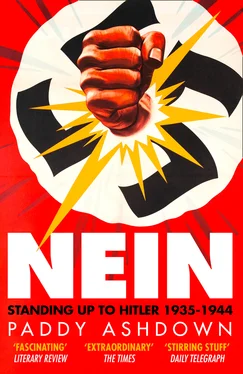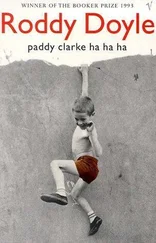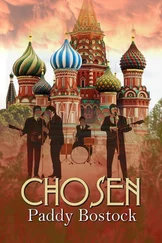A few days later a diplomat at the British embassy in Berlin discreetly slipped an unaddressed envelope to Ian Colvin, who passed it on to Kleist-Schmenzin in the backstreet bar in Bendlerstrasse where the two men had met before the German emissary’s departure for London.
Inside the envelope a letter from Churchill read:
My Dear Sir,
I have welcomed you here as one who is ready to run risks to preserve the peace of Europe … I am sure that the crossing of the frontier of Czecho-slovakia … will bring about a renewal of the world war. I am as certain as I was at the end of July 1914 that England will march with France and … the United States … the spectacle of an armed attack by Germany upon a small neighbour … will rouse the whole British Empire and compel the gravest decisions.
Do not, I pray be misled upon this point. Such a war, once started, would be fought out like the last, to the bitter end …
As I feel you should have some definite message to take back to your friends in Germany … I believe that a peaceful solution of the Czecho-slovak problem would pave the way for the true reunion of our countries on the basis of the greatness and the freedom of both.
In time to come, Churchill’s brief note would fall into the wrong hands, and become a death warrant for Ewald von Kleist-Schmenzin and many of his colleagues.
Three weeks after Kleist-Schmenzin’s visit to London, on Monday, 5 September, a young woman also checked in at Tempelhof ostensibly on a short visit to the British capital. Her luggage was light, but her mind bore a very important message. This was not the first text too secret to be written down which Susanne Simonis, the European correspondent for the Deutsche Allgemeine Zeitung , had memorised for her cousin Erich Kordt, the head of foreign minister Ribbentrop’s personal office – but it was the most important. For this was a piece of secret information to be passed to the very top of the British government by Kordt’s brother Theo, a senior diplomat at the German embassy in London – and it had the potential to avoid a world war. The message was that a high-level ‘conspiracy against Hitler exists in Germany and that a firm and unmistakable attitude by Britain and France would give the conspirators their opportunity [to remove the Führer] on the day that the German mobilization [for the invasion of Czechoslovakia] is announced’.
The day after Simonis’s arrival in London, Theo Kordt was smuggled into 10 Downing Street by the ‘secret’ door which leads from Horse Guards Parade into the prime minister’s garden. From there he was led up to the office of Chamberlain’s personal emissary to Hitler, Sir Horace Wilson. Wilson, who was also a convinced appeaser, listened attentively to Kordt’s message, and his assurance that if Britain and France stood up to Hitler on Czechoslovakia, the Wehrmacht would depose him at the instant he ordered the invasion. Wilson, who had met Kordt previously and trusted him, was impressed, and asked the German diplomat to return the following day to meet the foreign secretary, Halifax.
After listening to Kordt’s message the following evening, Halifax said he would do his best to ensure that the prime minister was informed – and perhaps some other cabinet colleagues too. Kordt was experienced enough to know that this was the kind of politeness the English use to cover lack of enthusiasm. He was shown back to the Downing Street garden door, and walked out onto Horse Guards Parade and into the London night puzzled and worried by Halifax’s muted response. And well he might have been. For Halifax could not tell his visitor that his master, Neville Chamberlain, had already decided not to resist Hitler’s demands for the Sudetenland, but to yield to them. ‘We could not be as candid with you as you were with us,’ Halifax was later to tell Kordt – long after the damage was done.
On Sunday, 11 September, four days after Kordt’s second backdoor visit to Downing Street, Vansittart’s secret emissary A.P. Young flew to Switzerland for another meeting with Carl Goerdeler in Zürich, once again at the German’s urgent request. The two met in the St Gotthard Hotel and strolled to Zürich’s Belvoir Park, where they spent two hours walking in the autumn sunshine among the flowerbeds and carefully manicured lawns, discussing the coming war and how it could now be stopped only by a combination of strong British and French action, backed by a coup to remove Hitler. At Zürich station that evening, as the world teetered towards the brink of war, Goerdeler waved goodbye to Young with the words, ‘Remember always that we shall win the last battle.’
In the early hours of Wednesday, 28 September 1938 an armed raiding party, nicknamed ‘Commando Heinz’ after its leader, gathered in the Hohenzollerndamm headquarters of the Wehrmacht’s Third Army Corps, responsible for the defence of Berlin. The unit consisted of fifty or sixty assorted desperadoes, ranging from Abwehr and Wehrmacht officers, to armed civilians and civil servants, to student leaders. Under the command of an ex-Nazi thug and serial revolutionary called Friedrich Wilhelm Heinz, they were ready for action and equipped with weapons supplied on the instructions of Admiral Canaris. ‘The silence of pre-dawn Berlin,’ a commentator wrote later, ‘was broken by the click-click-click of ammunition being loaded into [the magazines of] carbines and automatic weapons.’
Commando Heinz’s orders were to arrest Adolf Hitler at the moment he gave the order to invade Czechoslovakia at two o’clock that afternoon, and take him to a nearby hospital. There the dictator would be seen by the psychiatrist Dr Karl Bonhoeffer, the father of the great theologian, who would declare the Führer insane and commit him to a lunatic asylum. But some in the group did not intend to let Hitler get that far. They had secretly sworn to kill him in the confusion of the arrest.
The conspirators’ task was, on the face of it, not a difficult one. Only fifteen SS soldiers guarded Hitler in his Chancellery at any one time. The great double doors of the building would be secretly unlocked from the inside by one of the Foreign Office conspirators so as to give the raiding party easy access. There were plenty of reinforcements ready to come to the raiders’ assistance if required. In the Foreign Office and the Interior Ministry, anti-Nazi diplomats and officials had been issued with arms, and were ready to play their part. Other reserve forces made up of small groups of officers were waiting in private houses and apartments across the German capital, like the group holed up in the ornate white-stuccoed art-nouveau block of flats at Eisenacher Strasse 118, close to the government quarter. One of the plotters told his brother over dinner that evening, ‘Tonight Hitler will be arrested.’
There were good reasons for this confidence. Among those backing the putsch were the chief of the German staff and his predecessor, the commander-in-chief of the Wehrmacht, the political and operational leaders of the criminal police, the commander of the Berlin military district and one of his subordinates, the state secretary of the Foreign Office and his chief of ministerial office, the president of the Reichsbank, a senior official in the German embassy in London, another in the Department of Justice, and Hitler’s personal interpreter. *
The plot had been meticulously prepared.
Two weeks earlier, on 14 September, after several days spent carrying out a detailed reconnaissance of all the key sites, there was a full paper rehearsal of the coup plans, which incorporated the seizure of key Berlin police stations, an armed takeover of the state wireless transmitters, telephone installations and repeater stations, and the occupation of Hitler’s Chancellery and key ministries. When the exercise ended, General Erwin von Witzleben, the commander of the Berlin garrison and the coup’s de facto leader, declared that all preparations had been completed. They were ready. The moment Hitler gave the order to invade the Sudetenland, they would make their move.
Читать дальше












